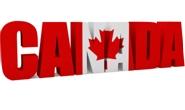Government/Policy

December 10, 2015
CBSA Final Determination on Dumping and Subsidizing of HRC Plate from India and Russia
Written by Sandy Williams
The Canada Border Services Agency has made final determinations that dumping has occurred on hot-rolled carbon steel plate and high-strength low-alloy steel plate originating in or exported from India and Russia and subsidizing on hot-rolled carbon steel plate and high-strength low-alloy steel plate originating in or exported from India. The investigation on subsidizing from Russia was terminated.
The Canadian International Trade Tribunal (Tribunal) is continuing its inquiry into the question of injury to the domestic industry and will make a finding by January 6, 2016.
If the Tribunal finds injury, anti-dumping duties would apply at a rate of 98.1 percent with the exception of Severstal of Russia which would apply at a rate of 15.3 percent. Imports from India will also be subject to a countervailing duty rate of 7,844 Indian rupees per metric tonne.
The investigations follow a complaint filed by Essar Steel Algoma, Inc.
“Enforcing fair trade in Canada’s domestic steel market is more critical than ever given current market conditions,” said Essar Steel Algoma President and CEO Kalyan Ghosh. “The determinations imposed by the CBSA represent a victory for all Canadian steel producers. It signals clearly that our government will not allow other countries to distort our markets by dumping steel here.”







